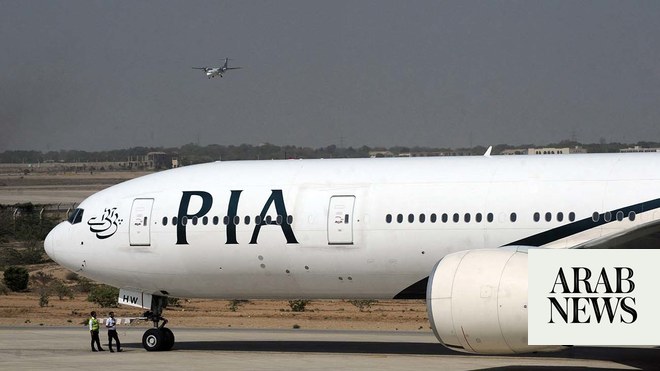KARACHI: Pakistan People’s Party (PPP), one of Pakistan’s government’s coalition partners, on Monday said it would not privatize the national airline and other state institutions, regardless of the potential impact on the government’s talks with the International Monetary Fund. He said he would resist. The (IMF) announced a new relief program this month.
Pakistan completed a $3 billion short-term IMF program last month, helping it avoid default on its sovereign debt, but Prime Minister Shehbaz Sharif’s government has stressed the need for a new long-term program.
An IMF mission is scheduled to visit Pakistan in mid-May to discuss future budget, policy, and reforms under a possible new program. Pakistan’s fiscal year runs from July to June, and the new Sharif government’s first budget for 2025 needs to be submitted by June 30.
Pakistan’s Finance Minister Mohammad Aurangzeb on Monday expressed hope that Pakistan International Airlines (PIA) and other privatization deals would cross the “finish line” by early July.
Asked whether his party had assessed the impact of opposing the government’s privatization move, Sen. Taj Haider, a member of the PPP, said, “The IMF is not in our 10 points. It’s not even part of the.”
“Those who are slaves to the IMF should be worried. We must stand on our own feet, not look to outsiders.”
PPP co-chairman Asif Ali Zardari, currently the President of Pakistan, has set up a three-member committee to work with the government on privatization issues.
Haider said his party has already proposed to the government that Pakistan Steel Mills should be handed over to the Sindh government, which has operational capacity, while PIA should be operated through public-private partnership (PPP).
“Government institutions, including PIA and steel mills, should not be privatized because they will be selling valuable assets and will not be sustainable as we have witnessed in the past.” he said.
“There has never been a successful privatization and no public-private partnership (PPP) has failed.”
Haider said that until now, privatization drives remained unsuccessful because they were only aimed at selling off state-owned assets.
“PIA’s problems are the result of mismanagement,” he said. “If other airlines are making profits, why can’t PIA do it?”
Speaking at a conference in Islamabad on Monday, Finance Minister Aurangzeb outlined reforms under the new IMF agreement, saying the government needs to widen the tax base and raise the tax-to-GDP ratio.
“And the third one is SOE.” [state-owned enterprises] Reform,” Aurangzeb said. “Our Prime Minister has made it very clear that there is no business in government…We need to accelerate our privatization plans and we will.”
Hidayatullah Khan, president of the PIA Employees Union, lamented that private airlines were given some of PIA’s domestic routes while the national carrier’s aircraft were left idle.
Khan said, “If PIA is not making a profit, it is the management’s problem. The management’s policies have destroyed the airline.” It added that the employees will hold protests in Karachi and Islamabad.
Ali Khizar, an Islamabad-based financial and development consultant, said privatizing PIA was not the IMF’s “top concern.”
“The IMF has been advocating privatization, including PIA, for quite some time, but the main concerns are increasing taxes and reducing duplicative spending,” Khizar told Arab News.
“I believe PIA should certainly be privatized, although privatization will not have a major impact on negotiations with the IMF.”
Pakistan last week extended the deadline for companies to express interest in acquiring PIA to May 18, the day before the original deadline. According to the Privatization Commission, 10 companies have already expressed interest.
The Pakistani government had previously announced that it would take a 51-100% stake in the loss-making airline.
Disposing of the flag carrier, a move avoided by past elected governments because it would likely be highly unpopular, could help cash-strapped Pakistan negotiate further funding with the IMF. The key to this is the progress of privatization.

